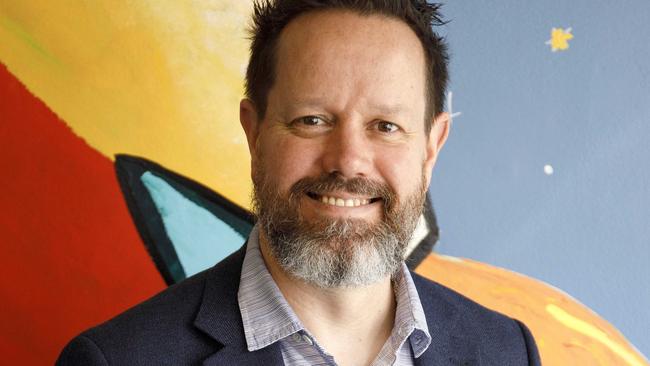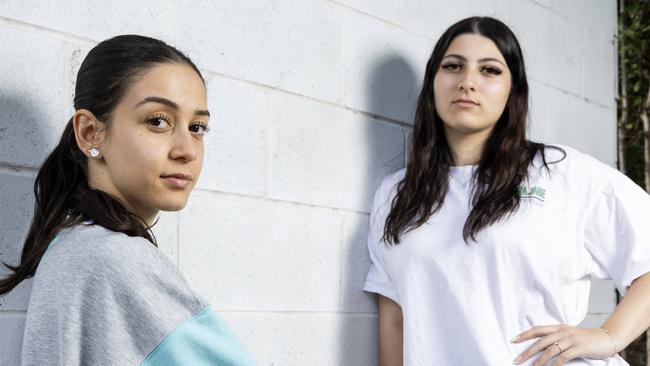Qld housing crisis: Your child will be 39 before they can buy a home
Grim new research reveals just how long the average Queensland school leaver will need to save to find a deposit for a house, delivering a dire message for parents facing the need to chip in to get their children on the property ladder.
Property
Don't miss out on the headlines from Property. Followed categories will be added to My News.
The average Queensland school leaver will need to save for a whopping 21 years to afford a deposit for a house, new research reveals, as more parents gift early inheritances to get their children on the property ladder.
Analysis by comparison site, Finder, has run the numbers and found a typical 18-year-old would be 39 before they could afford a 20 per cent deposit for a median house priced at $762,162. It would take half the time (10 years) to save a deposit for a median unit, which is currently worth $547,605.
Even if a school-leaver was able to save a $200,000 deposit over the next two decades for a $1m home, the income required to service the loan would be around 79 per cent of their wages making it all but impossible for them to hang onto their home-ownership dream.
Finder analysts contrasted the standard income of a student while they’re at university and once they’ve entered the workforce as well as median Queensland property prices and Brisbane’s average price growth over the last 10 years.

They then factored in putting aside at least 22 per cent of a high-school student’s future wages in savings.
Finder head of consumer research Graham Cooke said the analysis showed the only way many young people could afford to buy a home was with family support.
“The days of one income earner and a stay-at-home parent being able to raise a family in their own home are long gone,” Mr Cooke said.
“For most people, wage growth simply isn’t keeping pace with skyrocketing property prices.
“While the bank of Mum and Dad makes it easier for some to enter the property market, not all will have that privilege.
“Parental support can significantly lower the initial hurdle of saving up for a house deposit, allowing quicker entry into the market, smaller loans, and a better chance of loan approval.”
It comes as local agents say “every second buyer” in the sub-$1 million price range is a parent using equity from their own homes to help their children buy one.
Brisbane buyer’s agent Wendy Russell said it was becoming almost impossible for young people to buy a home without the help of generational wealth.
“I feel as though every second buyer in that sub-$1 million price point fits a similar brief — mums and dads using their equity to help their kids buy into the market now because they know they won’t have an opportunity in the near future,” Ms Russell said.
“Early inheritances is becoming a big trend. Parents using their equity to facilitate a guarantor status, or arranging for early inheritances.”
McGrath agent Adriana Cameron said it was becoming more common for parents to sell the family home and look to downsize so they could afford to help their children get on the property ladder.
“We’ve just appraised a property, and the parents are thinking of downsizing to help their children buy their first home,” she said. “It happens a lot.”
Occupational therapy student Lucinda Sophocleous, 20, said she knows it may take years for her to buy a house with increasing cost-of-living, rates and the price of houses.
“It’s always lingering in the back of your head, you don’t know what else is going to happen. It could get worse, looks like it is already getting worse,” she said.

“I am lucky to be living with my parents but when that stage comes a bit closer, it will be a bit scary and overwhelming. I am not worried about it at this point in time. But in the near future I will be thinking about it.”
Ms Sophocleous said it was hard to save money at her age, especially when she has to do 20 hours of unpaid placement.
For the research, Finder analysed the median income a student earns while they are at university and the median income they earn once they leave university and enter the workforce.
The findings are also based on median property price data and the average price growth over the last 10 years in forecasts.
Mr Cooke said the analysis showed units offered a far easier entry point than houses, but it was still significantly difficult.
“For those wanting to buy, it requires an incredible amount of planning, research and sacrifice,” he said.
“It means borrowing more, working more, and putting aside more money towards loan repayments and stamp duty.
“Make sure you’re across the schemes, grants and incentives that can help you buy a home.”
Mr Cooke said it would help to get into a good savings habit early on, and have a budget.
“Budgeting gives you financial freedom because it lets you allocate money towards ‘fun’ expenses like brunch, Netflix and daily coffees without feeling guilty, or that you’re putting your financial future on the line,” he said.
“Secondly, open a high-interest savings account with a solid ongoing rate of at least 5 per cent, and put as much money in it as possible.”
Queensland school leavers still have it better than those in New South Wales, where it will take on average 44 years to put down a deposit on a house and 20 years for a deposit on a unit.
Victorians will on average have the funds for a deposit in 25 years for a house, and 13 years for a unit.



